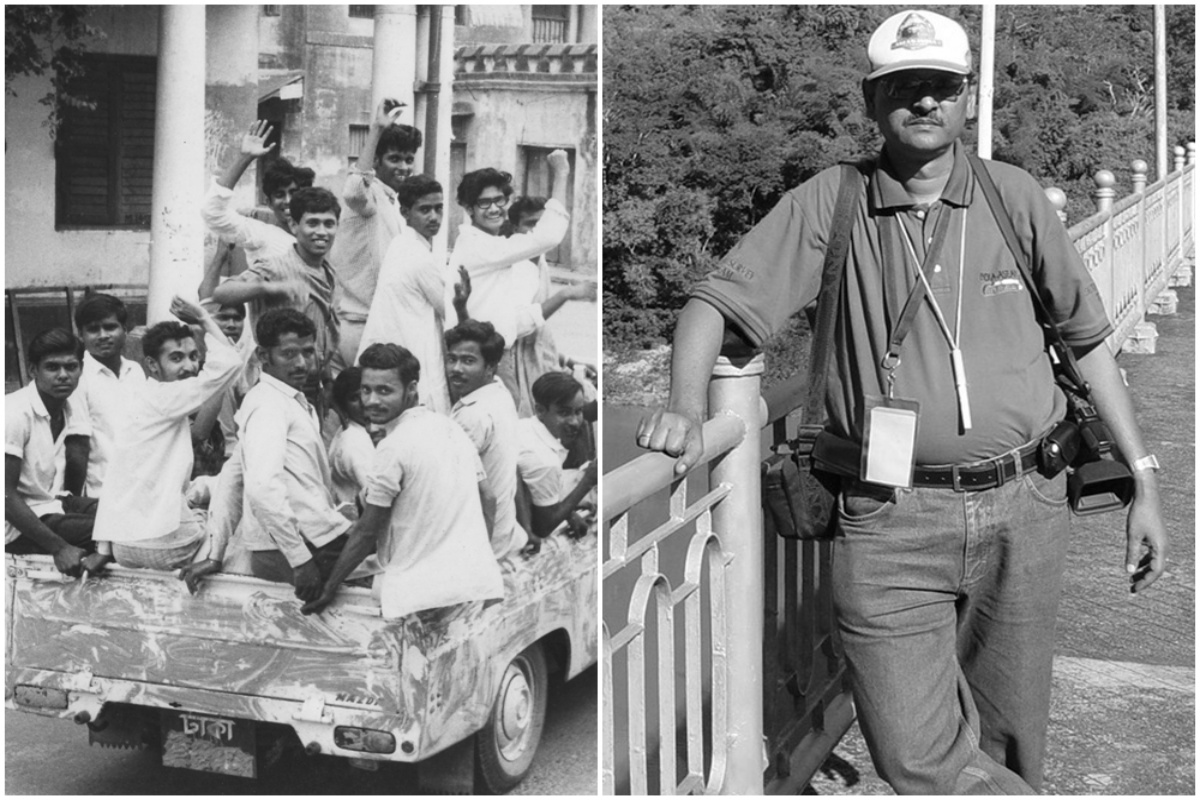Two women killed in separate road mishaps
Two women were killed in separate road accidents in Kolkata on Monday morning.
The spirit seen at birth remains unchanged 50 years later as Bangladesh celebrates the Golden Jubilee of its Independence with Indian PM Narendra Modi as guest of honour in what is obviously an expression of deep gratitude for India’s role in Bangladesh’s liberation.

Victorious bengali fighters from dasgupta ' s book
A book with more than 150 rare photographs of the 1971 Bangladesh Liberation War was launched at the Kolkata Press Club ahead of Prime Minister Narendra Modi’s two-day visit to Bangladesh.
Veteran Kolkata journalist Abhijit Dasgupta’s “Through My Eyes : The Birth of Bangladesh” contains the rare images he shot during his ten forays into Bangladesh in the company of the Bengali freedom fighters then battling the Pakistan Army.
Advertisement
He worked for Statesman at that time but most of his pictures shot inside East Pakistan or on the borders went out to the world through the Gamma Presse Images, the world leading photo agency at that time.
Advertisement
“If a picture says a thousand words, I must have contributed my bit to arouse global opinion about the genocide unfolding in East Pakistan.
“My family roots are in Dhaka, the Pakistanis were killing my Bengali people, so the risk of entering a foreign territory engulfed in civil war was worth the while,” Dasgupta told IANS in an interview before the launch.
The book contains pictures broadly of three kinds — the massacres and devastation, the armed struggle and guerilla operations and both the refugee camps and post liberation Dhaka with some rare moments of the Mujib family captured on the photo film.
“Mujib’s son Sheikh Kamal who was in the Mukti Bahini as ADC to Commander in Chief M.A. Osmani was my personal friend. He was around my age and we hit it off very well. He was a vibrant personality and mostly took me around,” Dasgupta said, tears in his eyes as he recalled the death of Kamal and his wife with most members of Bangabondhu’s family in the August 1975 coup.
Dasgupta is proud he even has pictures of Sheikh Mujib’s father and mother who held out bravely during the nine months of massacre and mayhem.
“It was a rediscovery of my own people, my roots and ethos. I realised how tough the East Bengali peasentry is. They would face armed Pakistani soldiers with sticks, machetes and spears, their casualties in the initial months of the conflict was ten to twenty times that of the Pakistanis. They lost near and dear ones, their women were raped in front of their eyes, but the East Bengalis never flinched in their resolve to gain their Independence,” Dasgupta said.
“After Mujib’s 7th March speech declaring Independence, the people appeared possessed by a spirit of whatever it takes. So three million Bengalis died in 9 months but got their Independence.
“Don’t forget Bengalis had also lost three million people in the British-orchestrated Bengal famine barely 30 years ago.”
Bangladesh’s phenomenal economic turnaround and human development does not surprise Dasgupta.
“Sheikh Hasina has provided the same push and determination to take her country forward in continuation of her father’s dream of a Golden Bengal.
“Mujib’s famous ‘dabaye rakte parbana’ (we cant be put down) permeates Hasina’s infectious leadership style that has taken Bangladesh past Pakistan — and in some cases India — in economic growth and human development in the 2010-2020 Golden Decade,” said Dasgupta.
The spirit seen at birth remains unchanged 50 years later as Bangladesh celebrates the Golden Jubilee of its Independence with Indian PM Narendra Modi as guest of honour in what is obviously an expression of deep gratitude for India’s role in Bangladesh’s liberation.
India, under Indira Gandhi, provided substantial diplomatic, economic and military support to Bangladeshi nationalists. New Delhi joined the war on December 3, 1971, after Pakistan launched preemptive air strikes on North India. Pakistan surrendered in Dhaka on December 16, 1971, before the Allied Forces of Bangladesh and India.
Advertisement